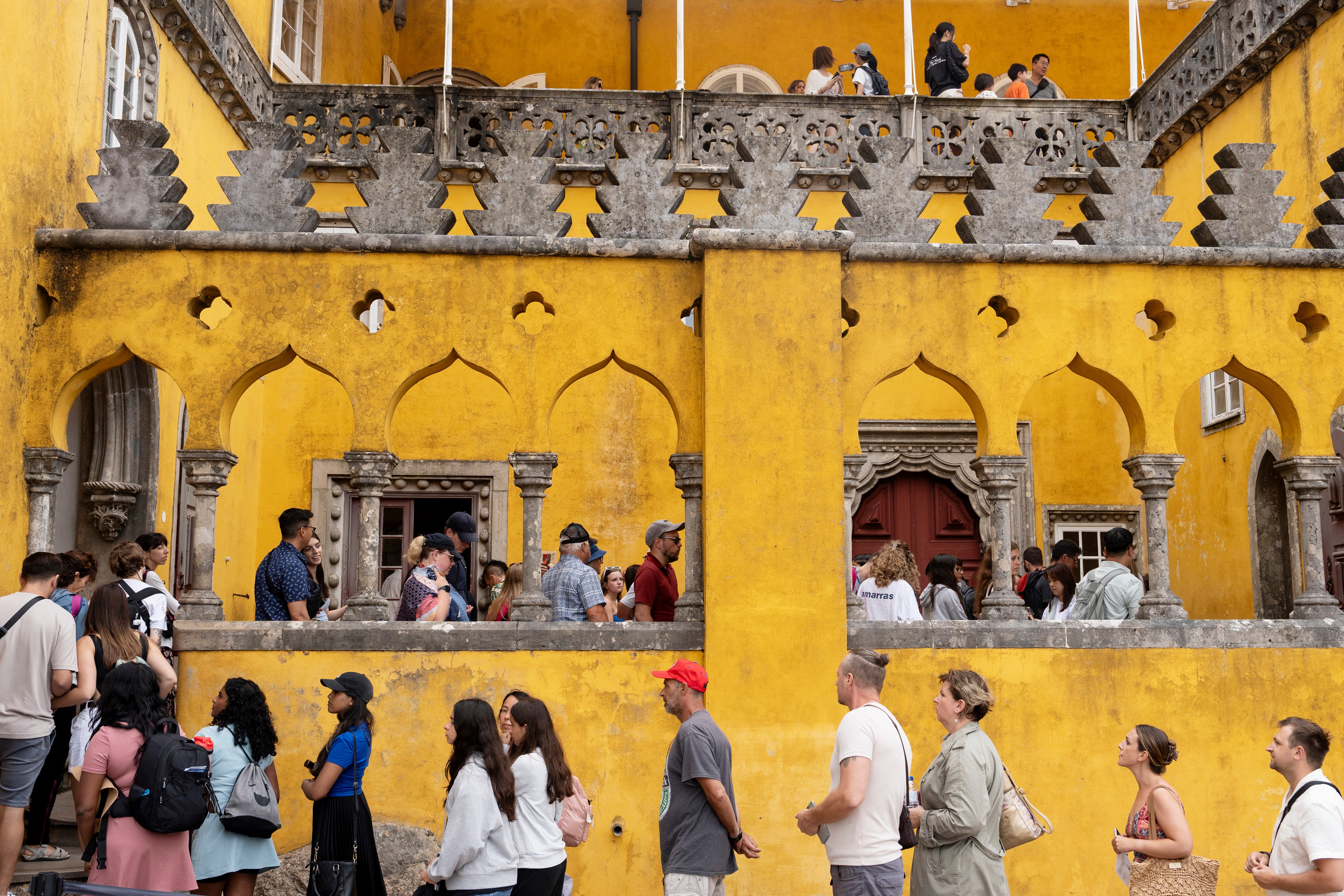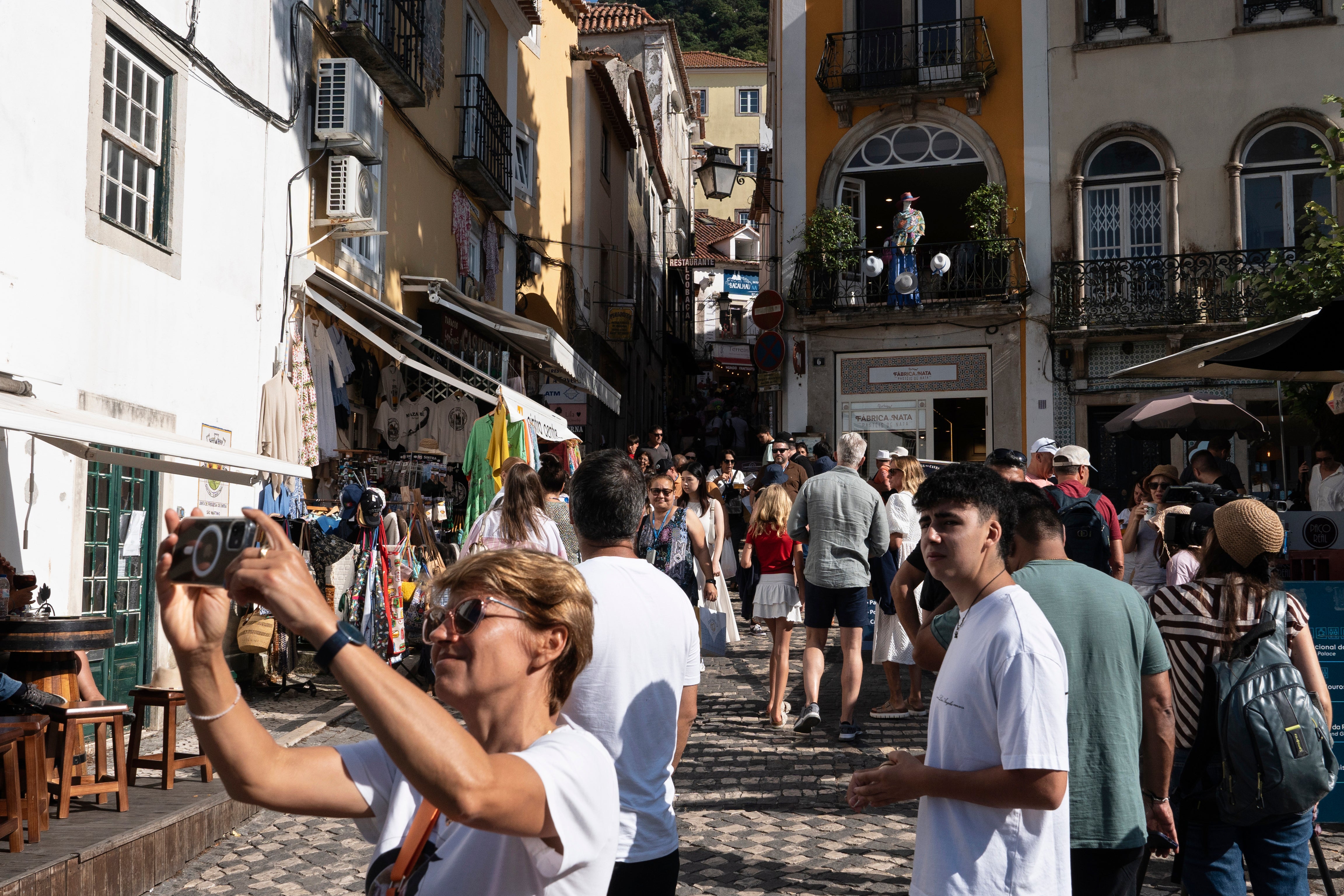The doorbell to Martinho de Almada Pimentel’s house is hard to find, and he likes it that way. It’s a long rope that, when pulled, rings a literal bell on the roof that lets him know someone is outside the mountainside mansion that his great-grandfather built in 1914 as a monument to privacy.
There’s precious little of that for Pimentel during this summer of “overtourism.”
Travelers idling in standstill traffic outside the sunwashed walls of Casa do Cipreste in Cintra sometimes spot the bell and pull the string “because it’s funny,” he says. With the windows open, he can smell the car exhaust and hear the “tuk-tuk” of outsized scooters named for the sound they make. And he can sense the frustration of 5,000 visitors a day who are forced to queue around the house on the crawl up single-lane switchbacks to Pena Palace, the onetime retreat of King Ferdinand II.
“Now I’m more isolated than during COVID,” the soft-spoken Pimentel, who lives alone, said during an interview this month on the veranda. “Now I try to (not) go out. What I feel is: angry.”

This is a story of what it means to be visited in 2024, the first year in which global tourism is expected to set records since the coronavirus pandemic brought much of life on Earth to a halt. Wandering is surging, rather than leveling off, driven by lingering revenge travel, digital nomad campaigns and so-called golden visasblamed in part for skyrocketing housing prices.
Cue the violins, you might grouse, for people like Pimentel who are well-off enough to live in places worth visiting. But it’s more than a problem for rich people.
“Not to be able to get an ambulance or to not be able to get my groceries is a rich people problem?” said Matthew Bedell, another resident of Sintra, which has no pharmacy or grocery store in the center of the UNESCO-designated district. “Those don’t feel like rich people problems to me.”

Overtourism generally describes the tipping point at which visitors and their cash stop benefitting residents and instead cause harm by degrading historic sites, overwhelming…
Click Here to Read the Full Original Article at The Independent Travel…
